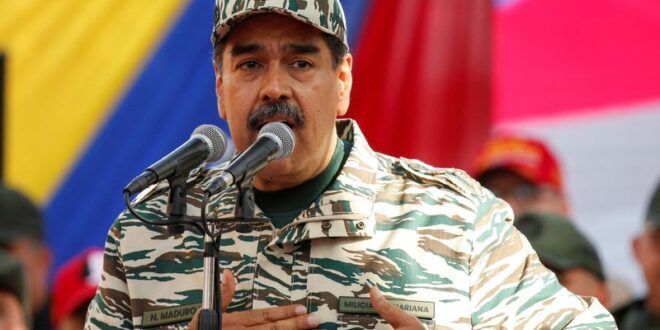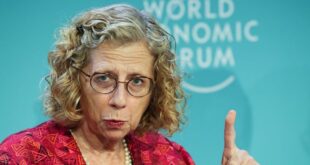CARACAS (Reuters) – As time was running out, Venezuela’s opposition chose low-profile former diplomat Edmundo Gonzalez to run against President Nicolas Maduro in a July election that political analysts said will require Gonzalez to build name recognition among voters.
The stakes are high for the July 28 vote as the U.S. has made holding fair elections a condition of lifting sanctions on the South American nation.
Initially named as a placeholder while the opposition struggled to confirm candidates, Gonzalez’ candidacy was finalized on Friday, a day before a Saturday deadline to replace him with someone else.
As Venezuela holds a presidential election for the first time since 2018, political analysts said 74-year-old Gonzalez, who was ambassador to Argentina at the turn of the century, will have an arduous path.
“He is a little-known candidate and his challenge will be to make himself known,” said Ricardo Rios, who directs local consulting firm Estrategia y Poder.
While the opposition had hoped to land on a unity candidate, the alliance finally decided to back Gonzalez who spent much of his career behind the scenes in the foreign ministry in the 1990s and more recently as an international relations adviser to the opposition coalition.
“Edmundo is very professional, discreet and has very firm democratic convictions. He’s not a fan of using bombastic or radical words,” said Jesus Torrealba, former secretary general of the Democratic Unity Board opposition alliance, now known as Unitary Platform.
Opposition leader Jose Guerra praised Gonzalez for his extensive knowledge of international, economic and political issues and said he speaks French and English along with his native Spanish.
“He is very tolerant and listens,” said Guerra, adding: “He will have a difficult campaign.”
The opposition struggled to name its candidate as several other potential contenders were either barred from office or prevented from registering. Venezuela’s top court upheld a bar on Maria Corina Machado, who won October’s primary vote with a landslide, from holding public office.
Machado then named a replacement, Corina Yoris, who was herself unable to register on the electoral council’s online system by a March deadline. Just two opposition candidates were able to register, a provincial governor and Gonzalez.
A survey of 1,200 people April 1-3 by local pollster More Consulting found that 46% of those interviewed planned to vote for a candidate backed by Machado, while 22% would vote for Maduro.
Meanwhile, the United States this week re-imposed sanctions it had eased on Venezuelan oil, saying the government has failed to comply with the terms of an electoral agreement it signed with the opposition six months ago.
(Reporting by Mayela Armas; Writing by Sarah Morland; Editing by Cynthia Osterman)
 BeritaKini.biz Berita Viral Terkini di Malaysia
BeritaKini.biz Berita Viral Terkini di Malaysia





